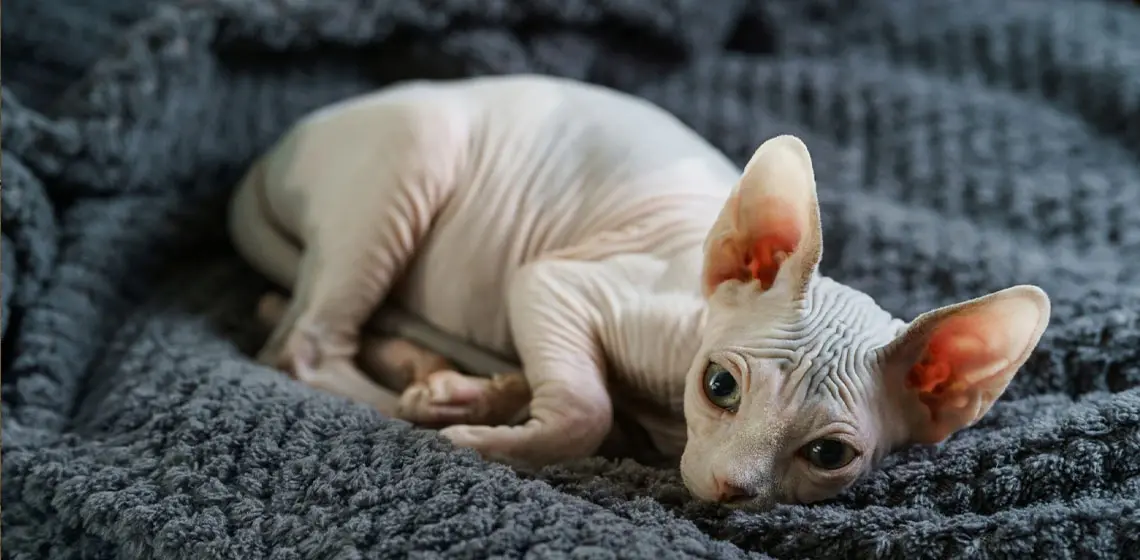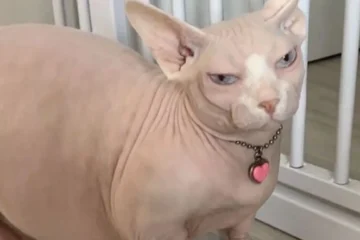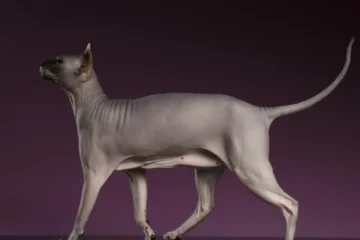Sphynx cats, known for their distinctive hairless appearance and charming personalities, have become a beloved breed among cat enthusiasts. However, like all pets, they come with their own set of health challenges.
Understanding the common health issues in Sphynx cats and how to prevent them is crucial for ensuring they live long, healthy lives.
In this comprehensive guide, we’ll explore these health issues, discuss preventive measures, and provide tips on keeping your Sphynx cat in optimal health.
Understanding the Unique Physiology of Sphynx Cats
Sphynx cats are unique in the feline world, primarily due to their lack of fur. This distinctive characteristic makes them particularly prone to certain health issues. To understand the common health problems in Sphynx cats and how to prevent them, it’s essential to first grasp the unique aspects of their physiology.
Lack of Fur and Its Impact
The absence of fur in Sphynx cats means they do not have the natural insulation and protection that other cats possess. This makes them more susceptible to temperature fluctuations and skin problems. Additionally, the lack of fur does not mean they are hypoallergenic. In fact, they produce skin oils and dander that can trigger allergies in sensitive individuals.
High Metabolism and Nutritional Needs
Sphynx cats have a higher metabolism compared to other breeds, partly because they need to work harder to maintain their body temperature. This increased metabolic rate means they require more food, and a diet rich in high-quality proteins and fats is essential for maintaining their health and energy levels.
Unique Skin Care Requirements
Due to their lack of fur, Sphynx cats require regular skin care to prevent oil buildup and other skin conditions. Unlike other cats that groom themselves to maintain coat and skin health, Sphynx cats rely more on their owners for bathing and skincare routines.
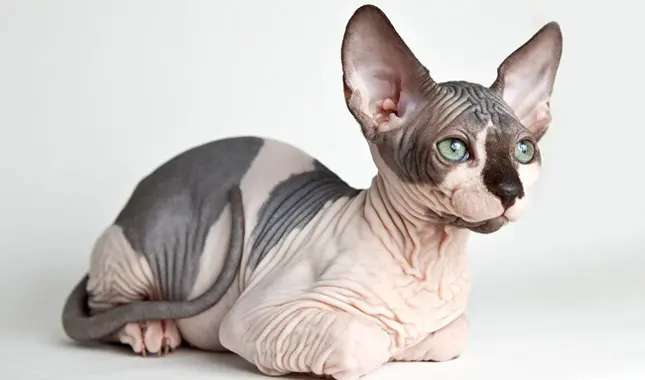
Common Health Issues in Sphynx Cats
Sphynx cats, while generally healthy, are predisposed to several health issues due to their unique physiology. Being aware of these potential problems is the first step in prevention and early detection.
1. Skin Problems
a. Oily Skin
Sphynx cats have a higher production of skin oils, which are usually absorbed by fur in other cats. Without fur, these oils can build up on their skin, leading to greasiness and sometimes skin infections.
Prevention Tips:
- Regular Bathing: Bath your Sphynx cat every one to two weeks using a gentle cat shampoo to remove excess oils.
- Moisturize: Use a pet-safe moisturizer occasionally if your cat’s skin becomes dry after bathing.
- Balanced Diet: Ensure your cat is on a balanced diet that supports healthy skin.
b. Acne
Sphynx cats can develop acne, especially on their chin and around their muzzle, due to clogged hair follicles.
Prevention Tips:
- Clean Food and Water Bowls: Use stainless steel or ceramic bowls instead of plastic, as plastic can harbor bacteria.
- Gentle Cleansing: Wipe your cat’s face with a pet-safe, non-alcoholic wipe regularly to remove any oil and dirt buildup.
c. Sunburn
Without fur to protect them, Sphynx cats are prone to sunburn if exposed to direct sunlight for extended periods.
Prevention Tips:
- Limit Sun Exposure: Keep your cat indoors during peak sunlight hours or provide shaded areas if they are outside.
- Use Pet-Safe Sunscreen: Apply a cat-safe sunscreen on your Sphynx’s skin if they need to be in the sun.
2. Respiratory Issues
Sphynx cats can suffer from respiratory problems, especially in colder climates, due to their lack of fur and the warmth it provides.
Prevention Tips:
- Keep Warm: Ensure your home is well-heated, especially during colder months. Consider using heated beds or blankets.
- Monitor Humidity Levels: Use a humidifier to maintain adequate humidity levels, as dry air can exacerbate respiratory problems.
3. Heart Conditions
a. Hypertrophic Cardiomyopathy (HCM)
Hypertrophic Cardiomyopathy is a genetic condition that affects the heart muscle, causing it to thicken and function improperly. It is one of the most common heart conditions in Sphynx cats.
Prevention Tips:
- Regular Vet Check-ups: Schedule regular veterinary check-ups, including heart ultrasounds if recommended by your vet, to monitor heart health.
- Genetic Testing: Before breeding, consider genetic testing to ensure you are not passing on the gene that causes HCM.
4. Dental Issues
Sphynx cats are prone to dental problems, including periodontal disease and gingivitis, due to their genetics and diet.
Prevention Tips:
- Regular Teeth Brushing: Brush your cat’s teeth regularly using a pet-safe toothpaste to prevent plaque buildup.
- Dental Treats: Provide dental treats and toys that help clean teeth and promote oral health.
- Routine Dental Check-ups: Ensure your cat has regular dental check-ups with your veterinarian.
5. Digestive Issues
a. Sensitive Stomach
Many Sphynx cats have sensitive stomachs and may experience digestive issues such as vomiting or diarrhea.
Prevention Tips:
- High-Quality Diet: Feed your Sphynx a diet of high-quality cat food that is free from fillers and artificial ingredients.
- Gradual Diet Changes: If you need to change your cat’s diet, do so gradually to prevent digestive upset.
- Monitor Food Intake: Pay attention to how your cat reacts to different foods and adjust their diet accordingly.
6. Ear Infections
Due to their lack of fur, Sphynx cats have less protection around their ears, making them more susceptible to ear infections caused by a buildup of wax and debris.
Prevention Tips:
- Regular Ear Cleaning: Clean your cat’s ears regularly with a vet-recommended ear cleaner to prevent wax buildup.
- Monitor for Signs: Watch for signs of ear discomfort, such as head shaking or scratching, and consult your vet if you notice any symptoms.
7. Obesity
Despite their high metabolism, Sphynx cats can still become overweight if their diet is not properly managed.
Prevention Tips:
- Controlled Feeding: Feed your cat measured portions to avoid overeating.
- Encourage Play: Ensure your cat gets plenty of exercise through interactive play and toys.
- Monitor Weight: Regularly check your cat’s weight and adjust their diet and exercise routine as needed.
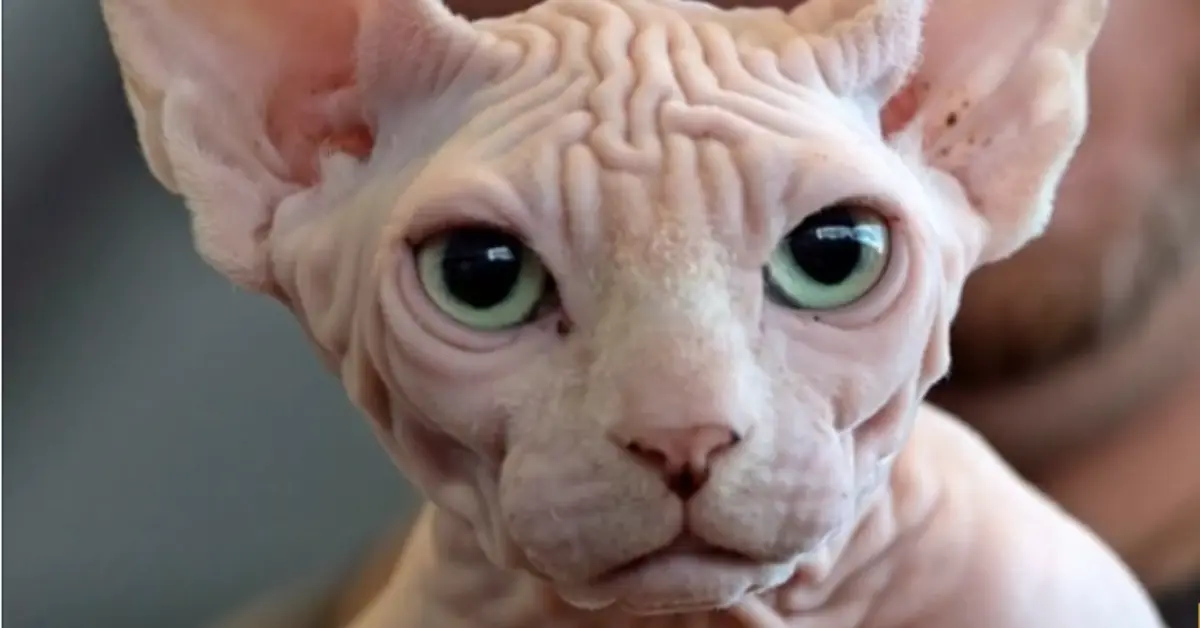
How to Prevent Common Health Issues in Sphynx Cats
Preventing health issues in Sphynx cats involves a combination of proper care, regular veterinary check-ups, and understanding their unique needs. Below are some comprehensive strategies to keep your Sphynx healthy.
1. Establish a Regular Grooming Routine
a. Bathing
Due to their lack of fur, Sphynx cats need regular baths to remove excess oil and dirt. Use lukewarm water and a mild, cat-safe shampoo.
Bathing Steps:
- Fill the Tub: Fill a sink or tub with a few inches of lukewarm water.
- Gentle Shampooing: Wet your cat’s body, avoiding the face, and gently lather with a cat shampoo.
- Rinse Thoroughly: Rinse all the shampoo off to prevent skin irritation.
- Dry Carefully: Pat your cat dry with a soft towel, ensuring all moisture is absorbed to prevent chilling.
b. Ear and Eye Cleaning
Use a soft, damp cloth to wipe your Sphynx cat’s eyes and ears regularly, as they can accumulate dirt and wax.
c. Nail Trimming
Regularly trim your Sphynx cat’s nails to prevent them from becoming overgrown and causing discomfort or injury.
2. Monitor Diet and Nutrition
A balanced diet is essential for the health of Sphynx cats. Due to their higher metabolic rate, they require a diet rich in protein and fat. Here are some tips:
- High-Quality Cat Food: Choose a premium cat food that meets the nutritional needs of Sphynx cats.
- Avoid Fillers and By-products: Ensure the food is free from unnecessary fillers and by-products, which can lead to digestive issues.
- Supplemental Treats: Use healthy treats to supplement their diet, but avoid overfeeding to prevent obesity.
3. Regular Veterinary Check-ups
Frequent vet visits are essential to catch any potential health issues early. Your vet can provide advice tailored to your cat’s specific needs.
a. Annual Exams
Ensure your Sphynx cat receives an annual check-up to monitor their overall health, including heart function, weight, and dental health.
b. Vaccinations
Stay up-to-date with vaccinations to protect your cat from common feline diseases.
4. Create a Safe and Stimulating Environment
a. Temperature Control
Sphynx cats are sensitive to temperature changes due to their lack of fur. Keep your home at a comfortable temperature and provide warm bedding options.
b. Indoor Play and Exercise
Engage your Sphynx cat in regular play sessions to keep them physically active and mentally stimulated. Use toys, climbing trees, and interactive games to encourage movement.
5. Be Aware of Genetic Predispositions
Understanding the genetic predispositions of Sphynx cats can help in early detection and prevention of certain health issues, such as HCM.
a. Genetic Testing
Consider genetic testing for heart conditions, especially if you plan to breed your Sphynx cat. This can help identify carriers and reduce the risk of passing on genetic conditions.
b. Monitor for Symptoms
Be vigilant in monitoring your cat for any signs of health issues, such as difficulty breathing, lethargy, or changes in behavior. Early detection is key to managing genetic conditions.
Frequently Asked Questions
Can Sphynx cats get cold easily?
Yes, due to their lack of fur, Sphynx cats can get cold easily. It's important to keep them warm, especially in colder climates, by providing heated beds, warm clothing, or keeping the home environment at a comfortable temperature.
What type of food is best for Sphynx cats?
Sphynx cats need a high-protein, high-fat diet to support their higher metabolism. Choose a high-quality cat food that is specifically formulated to meet the nutritional needs of active and hairless cats.
Are Sphynx cats prone to allergies?
Sphynx cats can have sensitive skin and may develop allergies to certain foods, environmental factors, or grooming products. It's important to use hypoallergenic products and monitor your cat for any signs of allergic reactions.
How can I prevent my Sphynx cat from getting sunburned?
To prevent sunburn, keep your Sphynx cat indoors during peak sunlight hours or provide shaded areas if they are outside. You can also apply a pet-safe sunscreen to their skin if they need to be exposed to the sun.
Do Sphynx cats need special dental care?
Yes, Sphynx cats are prone to dental issues such as periodontal disease and gingivitis. Regular teeth brushing, dental check-ups, and providing dental treats or toys can help maintain good oral health.
How can I tell if my Sphynx cat has a heart condition?
Common signs of heart conditions in Sphynx cats include lethargy, difficulty breathing, rapid breathing, and fainting. If you notice any of these symptoms, consult your veterinarian immediately for a thorough examination.
Is it normal for Sphynx cats to have a high metabolism?
Yes, Sphynx cats have a higher metabolism due to their lack of fur and the need to maintain body temperature. This is why they require a diet rich in high-quality proteins and fats.
How do I clean my Sphynx cat’s ears?
Use a vet-recommended ear cleaner and a soft cotton ball to gently clean your cat's ears. Avoid using cotton swabs as they can push debris further into the ear canal and cause injury.
What should I do if my Sphynx cat develops acne?
If your Sphynx cat develops acne, clean the affected area with a pet-safe wipe or mild antiseptic solution. If the condition persists or worsens, consult your veterinarian for further treatment options.
Conclusion
Caring for a Sphynx cat requires understanding their unique needs and being proactive in preventing common health issues. By following proper grooming routines, maintaining a balanced diet, providing a safe and stimulating environment, and scheduling regular veterinary check-ups, you can help ensure your Sphynx cat lives a long, healthy life. Awareness and early intervention are key to managing the health of these distinctive and loving feline companions. Remember, understanding common health issues in Sphynx cats and how to prevent them will go a long way in providing the best care for your hairless friend.

